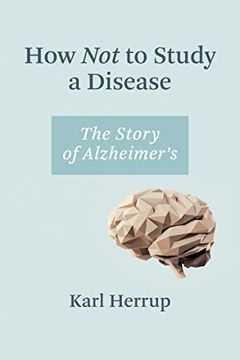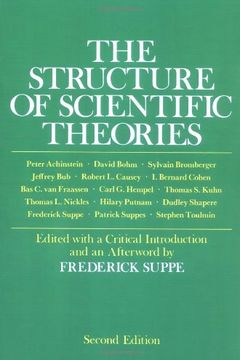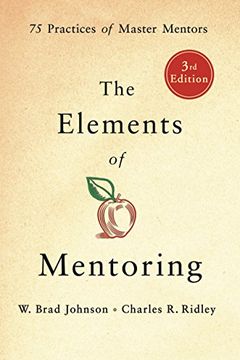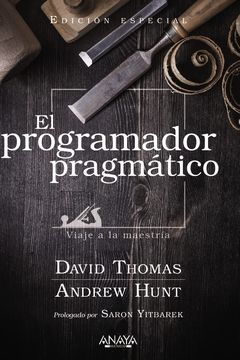17 libros en la lista
Ordenar por
Últimas recomendaciones primero
Diseño
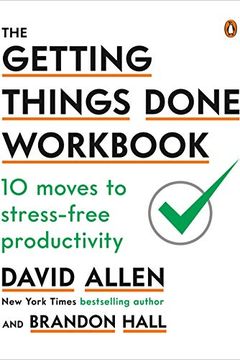
The Getting Things Done Workbook
10 Moves to Stress-Free Productivity
This step-by-step workbook is the perfect supplement to the popular productivity guide, Getting Things Done. The book provides practical and accessible tips on how to apply GTD concepts in daily life. Divided into easy-to-manage chapters, each one provides guidance on how to tackle common productivity challenges such as managing to-do lists and email overload. Both seasoned GTD users and newcomers can benefit from this handy guide, which offers immediate benefits and helps readers achieve sustained efficiency.
Russ Poldrack
2022-12-14T23:09:30.000ZA neurobiologist offers insight into why past efforts to find a cure for Alzheimer's disease have failed, and a vision for future research. With frankness, he describes the red flags science ignored in the rush for a cure. However, his final message is optimistic, and he presents a new and sweeping vision for the field. This roadmap for future research covers drug development, basic research, and the role of scientific media. How Not to Study a Disease provides a concise yet comprehensive guide for anyone interested in finding a cure for Alzheimer's.
Russ Poldrack
2022-06-19T10:35:48.000ZPhilosophy. Science...
Russ Poldrack
2021-12-16T19:59:54.000ZUnlock the mystery of how living things maintain their complexity despite constant genetic mutations with Robustness and Evolvability in Living Systems. Author Andreas Wagner explores the paradox of genetic instability and organism success, delving into everything from DNA and genetic networks to whole organisms. Discover how evolution finds and favors robust solutions to survival and reproduction, and how this robustness enhances future innovation. This groundbreaking analysis offers valuable insights for biologists, engineers, and social scientists alike.
Russ Poldrack
2021-12-16T19:59:53.000ZThis book is the ultimate guide to mentoring. It summarizes the most important research on the topic and provides 65 concise truths for supervisors in all fields. Learn what makes an excellent mentor, how to set up a successful mentor-protégé relationship, and how to work through problems that may develop. This is a must-have for any mentor or mentor-to-be.
Russ Poldrack
2021-12-16T19:59:49.000Z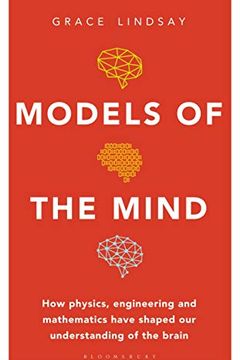
Models of the Mind
How Physics, Engineering and Mathematics Have Shaped Our Understanding of the Brain
Discover the language that allowed scientists to understand the essence of what 85 billion neurons do - mathematics. Computational neuroscientist Grace Lindsay delves into how mathematical models have helped us understand the brain's processes, such as decision-making and sensory processing, and how they create thoughts, perceptions, and actions. She walks readers through important concepts in modern neuroscience, highlighting the tensions that arise when bringing mathematical modeling into the messy details of biology. Follow Lindsay as she takes you on a journey through the history of neuroscience, from experiments on frogs to artificial neural networks. A must-read for anyone interested in understanding the mechanics of the mind.
Russ Poldrack
2021-12-16T19:59:48.000ZRecomendado por
Sean CarrollUna comprensión radicalmente nueva de la historia de la humanidad, que desafía nuestras suposiciones más fundamentales sobre la evolución social -desde el desarrollo de la agricultura y las ciudades hasta los orígenes del Estado, la democracia y la desigualdad- y revela nuevas posibilidades de emancipación humana.
Durante generaciones, nuestros remotos antepasados han sido calificados de primitivos e infantiles: inocentes libres e iguales, o matones y belicosos. La civilización, se nos ha dicho, sólo podría alcanzarse sacrificando esas libertades originales o, alternativamente, domesticando nuestros instintos más bajos. David Graeber y David Wengrow muestran cómo estas teorías surgieron por primera vez en el siglo XVIII como reacción conservadora a las poderosas críticas de la sociedad europea planteadas por observadores e intelectuales indígenas. La revisión de este encuentro tiene implicaciones sorprendentes en la forma en que damos sentido a la historia de la humanidad hoy en día, incluyendo los orígenes de la agricultura, la propiedad, las ciudades, la democracia, la esclavitud y la propia civilización.
Basándose en una investigación pionera en arqueología y antropología, los autores muestran cómo la historia se convierte en un lugar mucho más interesante una vez que aprendemos a deshacernos de nuestros grilletes conceptuales y a percibir lo que realmente existe. Si los humanos no pasaron el 95% de su pasado evolutivo en pequeñas bandas de cazadores-recolectores, ¿qué hacían todo ese tiempo? Si la agricultura y las ciudades no supusieron una inmersión en la jerarquía y la dominación, ¿a qué tipo de organización social y económica condujeron? Las respuestas son a menudo inesperadas y sugieren que el curso de la historia humana puede estar menos grabado en piedra y más lleno de posibilidades juguetonas y esperanzadoras de lo que solemos suponer.
El amanecer de todo transforma fundamentalmente nuestra comprensión del pasado humano y ofrece un camino para imaginar nuevas formas de libertad, nuevas maneras de organizar la sociedad. Se trata de un libro monumental de formidable alcance intelectual, animado por la curiosidad, la visión moral y la fe en el poder de la acción directa.
Russ Poldrack
2021-12-16T19:59:45.000Z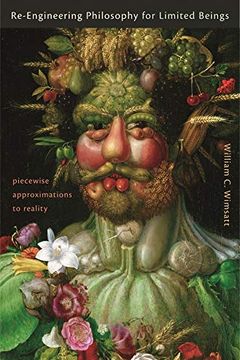
Re-Engineering Philosophy for Limited Beings
Piecewise Approximations to Reality
"Re-Engineering Philosophy for Limited Beings" by William C. Wimsatt is an intellectual tour of essays spanning thirty years, offering a philosophy for error-prone humans trying to understand messy systems in the real world. Wimsatt argues that our philosophy should be rooted in heuristics and models that work in practice, not only in principle, and offers new perspectives to deal with emerging natural and social complexities. This book offers a refreshing alternative to simplistic reductionism, demonstrating how to recalibrate our reductionistic and analytic methodologies for a transfigured philosophy."
Russ Poldrack
2021-08-05T16:17:20.000ZEl programador pragmático es uno de esos raros casos de libros técnicos que se leen, se releen y se vuelven a leer durante años. Tanto si es nuevo en el campo como si es un profesional experimentado, acabará encontrando ideas nuevas cada vez.
Dave Thomas y Andy Hunt escribieron la primera edición de este libro tan influyente en 1999 para ayudar a sus clientes a crear software mejor y a redescubrir el placer de escribir código. Estas lecciones han ayudado a una generación de programadores a examinar la propia esencia del desarrollo de software, independientemente de cualquier lenguaje, framework o metodología en particular, y la filosofía pragmática ha sido el germen de cientos de libros, screencasts y audiolibros, además de miles de carreras e historias de éxito.
Ahora, más de veinte años después, esta nueva edición reexamina lo que significa ser un programador moderno. Los temas abarcan desde la responsabilidad personal y el desarrollo profesional hasta técnicas de arquitectura para mantener su código flexible y fácil de adaptar y reutilizar.
Escrito como una serie de secciones independientes y repleto de anécdotas clásicas y nuevas, ejemplos razonados y analogías interesantes, este libro ilustra los mejores enfoques y los mayores obstáculos de muchos aspectos diferentes del desarrollo de software. No importa si es un novato, un programador con experiencia o un director responsable de proyectos de software, utilice estas lecciones en su día a día y pronto observará mejorías en su productividad personal, exactitud y satisfacción laboral. Aprenderá las habilidades y desarrollará los hábitos y actitudes que forman los cimientos del éxito a largo plazo en su carrera.
Russ Poldrack
2021-07-12T03:24:03.000ZRace Unmasked by Michael Yudell
Teaching Effectively with Zoom by Dan Levy
Cómo no hacer nada by Jenny Odell
El planeta inhóspito by David Wallace-Wells
Mala sangre by John Carreyrou
How to Teach Programming by Greg Wilson
Cómo trabaja Google by Eric Schmidt
The Art of Readable Code by Dustin Boswell
